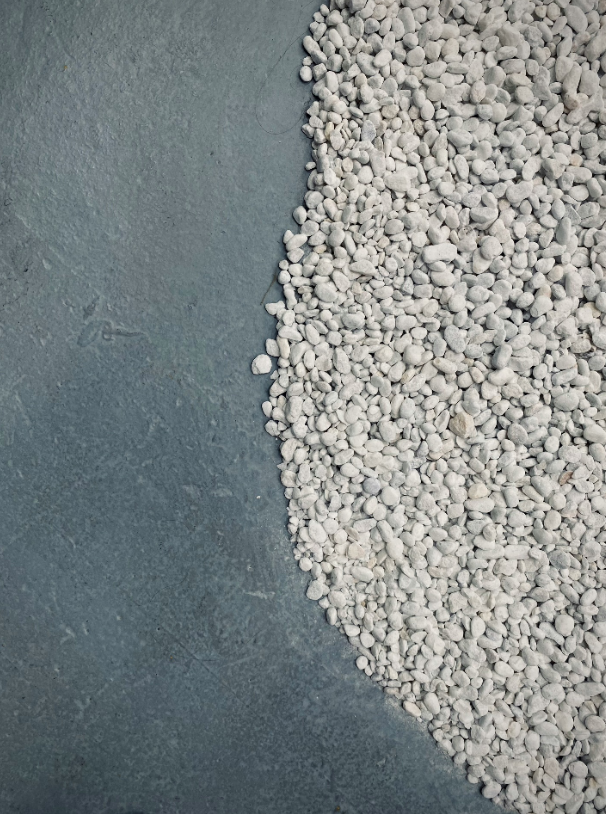
The Great British weather. It’s a topic of endless conversation, a source of daily unpredictability, and a crucial factor to consider when making any improvements to the exterior of our homes. From torrential downpours and biting frosts to the occasional (and glorious) heatwave, any outdoor surface in the UK needs to be tough, resilient, and up to the challenge. So, if you’re considering a new driveway, path, or patio, you might be wondering: is resin-bound gravel durable enough for the famously fickle British weather?
The short answer is a resounding yes. When installed correctly by professionals using high-quality materials, a resin-bound surface like that provided by Abacus Playground is one of the most durable and weather-resistant options on the market. But to truly understand why, let’s delve into the details of how this innovative surfacing solution stands up to everything our climate can throw at it.
What is Resin Bound Gravel?
First, it’s important to distinguish between ‘resin-bound’ and ‘resin-bonded’ systems, as the two are often confused. A resin-bonded surface is created by applying a layer of resin to a base and then scattering loose aggregate on top. This results in a textured, non-permeable surface where the stones can, over time, become dislodged.
A resin-bound system, on the other hand, involves mixing the aggregate (gravel) with a clear, strong polyurethane resin before it is laid. This mixture is then hand-trowelled onto a suitable sub-base to create a smooth, seamless, and, crucially, permeable surface. This permeability is one of the key features that make resin-bound gravel so well-suited to the UK’s wet climate.
Taming the Rain: The Permeable Advantage
We’re no strangers to rain in the UK. In fact, it’s a defining feature of our weather. Traditional driveway surfaces like tarmac and concrete are impermeable, meaning that rainwater has nowhere to go but to run off into our already overburdened drainage systems. This can contribute to localised flooding and the formation of hazardous puddles on your property.
Resin-bound gravel, however, is different. The gaps between the individual stones in the resin mixture create a porous surface that allows rainwater to drain through it, into the ground below. This has several significant advantages:
- No more puddles: By allowing water to drain away naturally, resin-bound surfaces prevent the formation of standing water, making them safer to walk and drive on, especially for children and the elderly.
- Reduced flood risk: As part of a Sustainable Urban Drainage System (SuDS), resin-bound driveways help to reduce the strain on public drainage systems and lower the risk of localised flooding. This is becoming an increasingly important consideration in many parts of the country.
- Better for the environment: By replenishing the groundwater table, permeable paving systems like resin-bound gravel are a more environmentally friendly choice than their impermeable counterparts.
Standing Strong Against the Frost and Ice
Winter in the UK can be harsh, with freezing temperatures, frost, and ice posing a significant threat to many outdoor surfaces. The freeze-thaw cycle, where water seeps into cracks, freezes, expands, and then thaws, can cause materials like concrete and tarmac to crack and crumble over time.
Resin-bound gravel is far more resistant to these wintry challenges. Its permeable nature means that water doesn’t sit on the surface, significantly reducing the formation of ice. This makes for a much safer surface in frosty conditions. Furthermore, the inherent flexibility of the polyurethane resin allows the surface to withstand the expansion and contraction caused by temperature fluctuations without cracking. While you can use salt to de-ice a resin-bound surface, its natural resistance to ice formation means you’ll likely need to do so far less often than with other materials.
Soaking Up the Sun (Without the Damage)
While we might not get as much sun as we’d like, it’s still an important factor to consider. Prolonged exposure to ultraviolet (UV) radiation can cause some materials to fade, discolour, or become brittle. This is where the quality of the resin used in a resin-bound system is paramount.
High-quality, UV-stable polyurethane resins are designed to resist the effects of sunlight, ensuring that your driveway or patio retains its original colour and doesn’t degrade over time. It’s crucial to ensure your installer uses a UV-stable resin, as cheaper, non-UV-stable alternatives can yellow and become patchy when exposed to the sun, leading to an unsightly finish.
The Importance of Professional Installation
While the materials themselves are incredibly durable, the longevity and performance of a resin-bound surface are heavily dependent on the quality of the installation. A reputable and experienced installer will understand the critical importance of a number of factors:
- A Solid Sub-Base: A resin-bound surface is only as strong as the base it’s laid on. A properly prepared, stable, and permeable sub-base (often porous tarmac or concrete) is essential to prevent cracking and ensure proper drainage.
- The Right Weather Conditions: The installation of a resin-bound system is a meticulous process that is highly weather-dependent. It should not be carried out in the rain, or in temperatures below 5°C or above 25°C. A professional installer will carefully monitor the weather forecast to ensure the conditions are optimal for a successful and long-lasting installation.
- Correct Mixing and Application: The ratio of resin to aggregate must be precise, and the mixture needs to be applied to the correct depth (typically 18-20mm for driveways) to ensure a strong and durable finish.
Low Maintenance, Long Life
One of the most appealing aspects of a resin-bound surface is its low-maintenance nature. A regular sweep with a stiff broom and an occasional jet wash are usually all that’s needed to keep it looking its best. Because the stones are bound within the resin, you won’t have the issue of loose stones migrating into your house or garden, as you would with a traditional gravel driveway.
Weeds are also rarely an issue. While windblown seeds can occasionally take root on the surface, they are easily removed and are highly unlikely to grow through the surface from underneath, a common problem with block paving.
The Verdict: A Sound Investment for Your Home
So, is resin bound gravel durable enough for British weather? The evidence is clear: when professionally installed using high-quality, UV-stable materials, a resin-bound surface is an exceptionally durable, long-lasting, and low-maintenance choice for any home. It can withstand the rain, resist the frost and ice, and won’t fade in the sun.
By providing a safe, puddle-free, and visually appealing surface that is also environmentally friendly, resin-bound gravel offers a modern and practical solution that is more than a match for our unique and challenging climate. It’s a long-term investment that will not only enhance the kerb appeal of your property but will also stand up to the rigours of British weather for many years to come.





